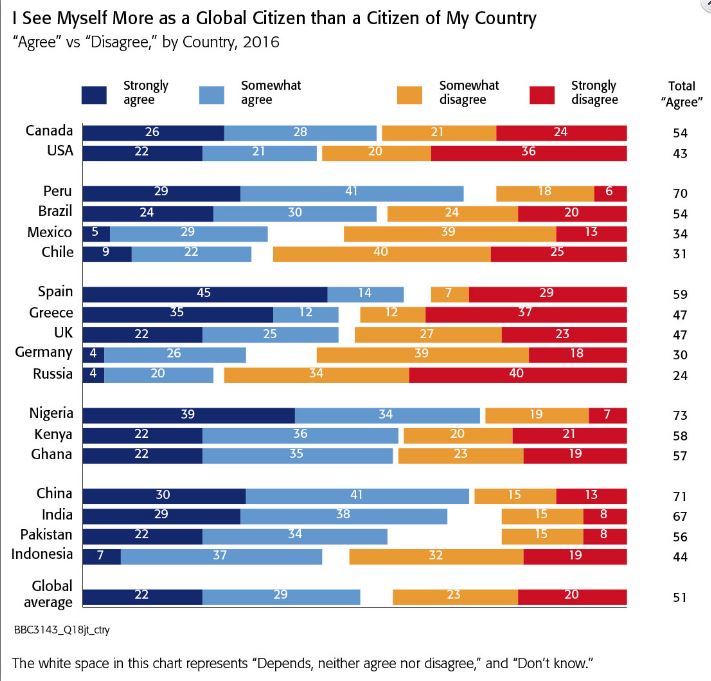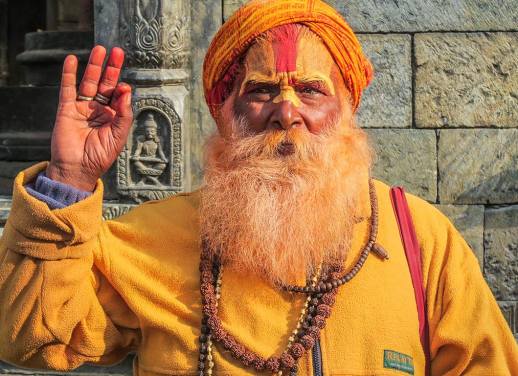Last October British PM Theresa May issued a warning to all those who consider themselves global citizens. “If you believe you are a citizen of the world,” she said. “you are a citizen of nowhere. You don’t understand what citizenship means.” Now this sort of thing isn’t particularly surprising in a world that’s goose-stepping towards nationalism, a world of clearly defined Us’s and Them’s. Still, the condescension rankles. It’s basically implying anyone who believes in a cosmopolitan ideal is too thick to wrap their head around the difference between countries and planets.
Call me naive, but I do believe in a cosmopolitan society. Global citizenship isn’t just a bumper sticker slogan. It’s an enlightenment ideal that goes back thousands of years. You can trace it through the ages all the way back to Diogenes, the Greek philosopher. The story goes that a passer-by asked Diogenes where he came from, and he answered “I am a citizen of the world.” A kosmopolitês. (It’s also rumoured he lived in a barrel and carried a lantern in order to search the world ‘for an honest man’. He was really committed to the whole philosopher thing.) Diogenes was the founder of cosmopolitanism, and you can feel his influence in everything from the Declaration of Human Rights to the far-flung Turkish diaspora that ends in the garlicky crunch of a Saturday night kebab.
Immanuel Kant even believed global citizenship was the road to perpetual peace. The old one-in-all-in approach. Naive? Maybe. But it was one of the original tenets of the most important organisation of the 20th century, the United Nations (of which the UK is a founding member, just FYI). If you read the Declaration of Human Rights, you’ll notice it doesn’t set a lot of stock in nations. Mostly because the UN had just seen first-hand what nationalism could do. The Declaration talks more of a “human family”, a “common people”. One free from tyranny and oppression and arbitrary borders. A society devoted to something bigger than a flag. What are we all doing on this rock if not working toward that ideal? Making some money? Killing time? Can anyone really argue for self-interest on a national scale over shared prosperity on a global one?
The funny thing is, Theresa May thinks she’s speaking to some shadowy liberal elite (probably the one with all these overqualified ‘experts’ we keep hearing about…) but she’s actually disparaging over half the people on the planet. Turns out that’s how many identify as a ‘citizen of the world’. In an 18-nation survey released a few months ago, 47% of Brits identified more with the label ‘global citizen’ than they did with ‘British’. Globally, the number was actually 51%. That’s over 3.6 billion people that want to belong to something bigger than just a country – 3.6 billion proud citizens of Nowhere.
Here are the numbers, if you’re interested.
The company that runs the survey, GlobeScan, has been doing it since 2001, and this is the first year recorded when more people than not considered themselves global citizens. If anything, the population of Nowhere is booming. We all want a visa. And it’s developing countries leading the charge too: countries like Nigeria, Peru and India.
‘Cosmopolitan’ has become a bit of a throw away word, used to describe anywhere you can get a banh mi and a burger on the same city block. But really it’s about sharing and understanding between different people. Which is a pretty neat description of why we travel in the first place. It’s why travel has been shown to boost empathy, increase creativity, change personality, make us better, keener, less rigid thinkers. It’s the process whereby a rough and brittle character, full of half-formed ideas and weird prejudices, is bounced around and made smooth, like a river stone. A lot of the time, you don’t even feel it happening. It resurfaces later, back home, in unexpected ways. Being a little less hasty to judge, a little more open to change. A little more thankful for what we have, and a little more compassionate for those that don’t have it. When you identify as a ‘citizen of the world’, you’re not just posturing to impress girls (well, not all the time), you’re identifying as someone that gives a damn.
If that makes me a citizen of Nowhere, then sign me up. I’d be proud to call it home.





